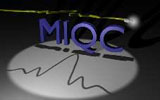Web lectures on QKD
ARQC will provide to registered participants, five 'on-demand' web lectures by prominent QKD scientists touching few specific fundamental points of QKD:
'Introduction to QKD' by Momchil Peev, Austrian Research Centers GmbH ARC (Austria)
'Security of the QKD' by Norbert Lütkenhaus, University of Waterloo (Canada)
'Practical QKD' by Gregoire Ribordy, ID Quantique (Suisse)
'Practical security loopholes (Quantum hacking)' by Vadim Makarov, University of Waterloo (Canada)
'Metrology for QKD' by Christopher Chunnilall, National Physical Laboratory (UK)
Registered participants may also exploit the specifically designed ARQC platform to:
- Promote, in a specific forum, discussions among the participants themselves and the scientific panel
- Raise questions to be answered by the scientific panel (lecturers plus few others scientists in the field)
An area will be available for posting additional documents.
The ARQC project is part of the dissemination program of the EU grant MIQC. Registration is free.
Active Research Quantum Cryptography (ARQC) is not a traditional web based course of physics on a specific topic, but aims at promoting an innovative way of disseminating knowledge in science. The technique to be used has already been repeatedly tested with great results in other (less sophisticated) contexts. In this sense, ARQC is also an interesting new experience which we hope you will share with us.
From 20 November, registration will be possible here
Scientific Organising Committee:
Enrico Predazzi (Agorà Scienza)
Giorgio Brida, Ivo Pietro Degiovanni, Marco Genovese (INRIM)
Best Practice Guide
This attached document presents current best-practice for characterising the optical components used in weak-coherent-pulse QKD systems which use phase encoding at telecom wavelengths. Particular attention is given to the single-photon sources and detectors used in such systems. The described methods are limited to those which can be implemented using commercially available, traceably calibrated instrumentation, or instrumentation that does not require the expertise of a national metrology laboratory to set up.
Download Best Practice Guide [PDF file]

